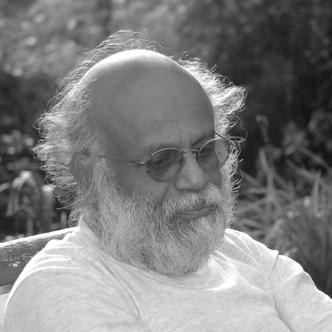
Daya Dissanayake
Daya Dissanayake is an award winning bi-lingual Sri Lankan author. He is the only Sri Lankan to have won the State Literary Award for the best English Novel thrice, winning it in 1998, 2007 and 2013.
Who was Aśoka?
Through all the legends built around him, and the misinterpretation of his inscriptions, it has become a near impossible task to see and identify the real Aśoka.
This book is an attempt to try to learn who the real Aśoka was, while posing many more questions for the historians, archaeologists, anthropologists and philosophers.
Read a review here or learn more.
Books
Samples of Daya's books, and details related to purchasing them are available on this website.
His "The Saadhu Testament", which was the first e-novel by an Asian author, is available for free online reading here. "Wessan Novu Wedun", which was the first Sinhala e-novel, is also available as a PDF file here.
View booksOther writings
Daya Dissanayake is not only a novelist, but also a poet and philosopher. A few of his essays and poems can be read freely on this website. You can also view more of his writings here.
From the blog
The Ig Nobel Award
Aug 28, 2016 • 5 min read
The Ig Nobel awards had been established as a reaction against the Nobel Awards. The aim was "to first make people laugh, and then make them think", probably because the Nobel Awards make us wonder if we should laugh or cry. Ig Nobel is organized by the bi-monthly magazine 'Annals of Improbable Research'.
Worship Tirupati At Kelaniya
Aug 21, 2016 • 11 min read
Tirupathi is in Chittoor district in Andhra Pradesh. It is one of the holiest places in India, Dedicated to an incarnation of Vishnu as Venkateshwara, with goddess Lakshmi residing on the chest of Venkateshwara. The god is also worshipped as Tirupathi Thimmappa by the Dalits, Adhivasis and the so-called 'Backward' castes in India. According to Wikepedia, the annual income is said to be over I.Rs 10 billion for a year!
De-Anglicizing Tagore
Aug 5, 2016 • 19 min read
De-Anglicizing Tagore could begin by calling him Gurudev Rabindranath. If we have accepted Rabindra-sangeet, instead of Tagore-sangeet, we are not creating a new precedent in calling him Gurudev Rabindranath, and his writings as Rabindrasahithya, and he too probably would have been happy to be accepted by this name. If we do not need a family name for Valmiki or Kalidasa, why do we need a family name for Rabindranath?